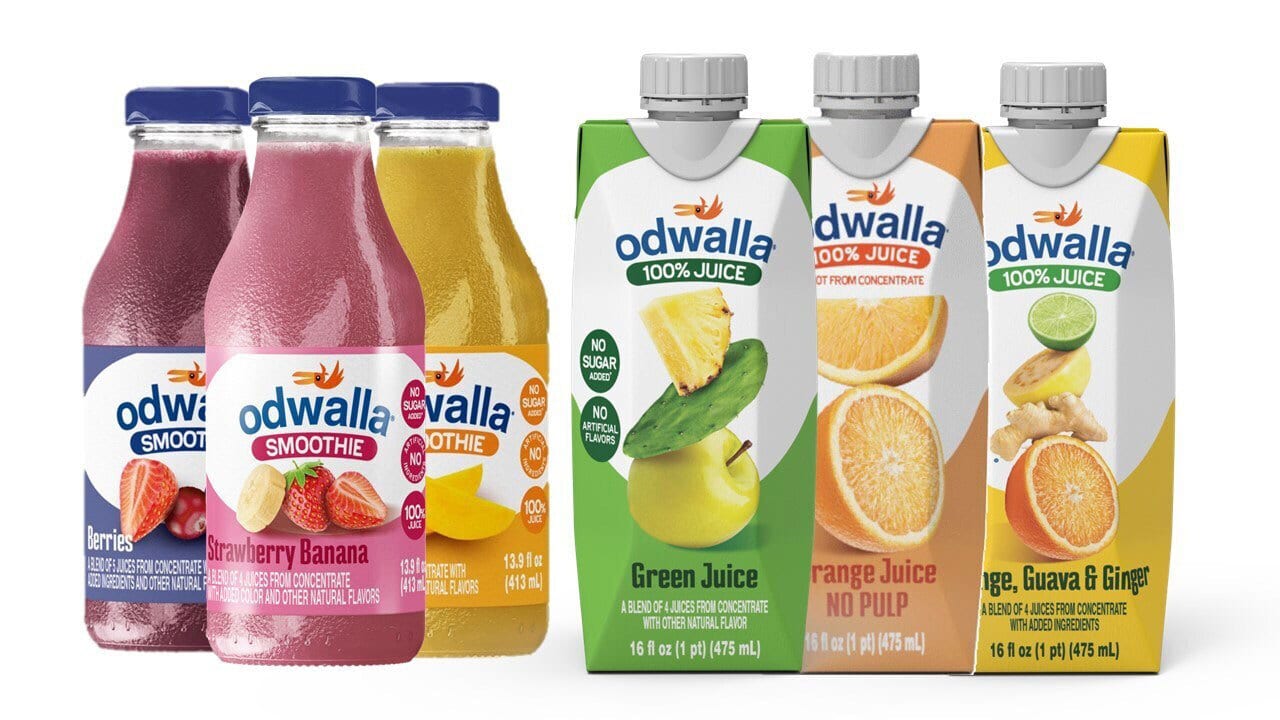Channel Strategies
Beverages for the masses
Growth in private label brings competition to natural, organic retailers
By Lauren Sabetta
(Image courtesy of Whole Foods Market)
In a December 2023 Investopedia article written by Christina Majaskie and reviewed by Samantha Silberstein, CFP, CSLP and EA, titled “American vs. European Options: What’s the Difference?” Majaskie notes that American and European stock options have similar characteristics, but their differences are important.
“Owners of American options may exercise at any time before the option expires. European options can only be exercised at expiration,” Majaskie writes. “Most equity options are American-style options, but many broad-based equity indices have actively traded European-style options, including the S&P 500.”
Similarly, for U.S. specialty retailers operating in the natural and organic space, although highly competitive, this grocery market has a great deal of choice, experts note.
“Specialty retailers in the natural and organic space (which falls within the Small Local Grocery category according to Euromonitor’s taxonomy) have experienced lower growth in the last year relative to hypermarket, discounter, supermarket and warehouse club competitors because, for most U.S. consumers of grocery, value and convenience are top of mind when it comes to shopping,” explain Leah Boston, senior analyst at Euromonitor International; Nik Allen, consultant; and Nina Valenti, research analyst at Euromonitor, Chicago.
“U.S. consumers are drawn to products containing natural and organic ingredients, but these offerings are readily available from a discounter, such as Aldi, or a warehouse club competitor like Costco,” the experts continue. “Growth in private label among major grocery retailers, which includes organic and natural offerings, has also cannibalized sales from small local grocers. As grocery prices have risen, we’ve seen significant investment in private label on the part of major retailers like Walmart, Costco and Kroger, as a way to retain margin while offering lower priced goods to consumers.”
Additionally, as described above, inflation trends are motivating consumers to seek out more value-oriented retail options, the Euromonitor experts note.
“It is hard for small specialty retailers focused on natural and organic to compete with larger chains that offer discounts associated with loyalty or membership programs, free or discounted delivery, and BOPIS (buy on-line, pick-up in store) options, especially when these larger chains are also stocking inventory with natural and organic product claims,” Boston, Allen and Valenti explain.

Branded fresh pressed juices such as Odwalla and Bolthouse Farms now are sold across major supermarket chains, Euromonitor experts note.
(Image courtesy of Odwalla)
Moreover, margins are especially tight for specialty retailers whereas larger corporations have far more buying-power, they note. “The burden of increased price often gets passed on to the consumer in the case of specialty retailers while larger grocers can reflect that back on suppliers,” the experts say.
In Mintel’s June “Grocery Retailing – US – 2025” report, Katie Hansen, senior analyst for retail and eCommerce at Mintel, Chicago, notes that tariffs, technology and tastes are transforming the grocery landscape as consumers adapt to prices and seek personalized shopping experiences.
“Consumers are increasingly adapting to higher grocery prices, with 49% seeking better deals and 35% switching to cheaper brands,” the report states. “This reflects a growing emphasis on value and affordability, prompting retailers to enhance loyalty programs and promotional tactics to retain consumer interest.”
Further technology, particularly artificial intelligence (AI), is gaining momentum with many consumers optimistic about its impact in retail, according to the report.
“AI will offer grocers the opportunity for enhanced personalization, improve operational capabilities and give consumers real time insight into available products on the shelves,” it states.
As far as tariffs impacting consumers and grocers alike, the report points out that tariffs already are impacting the grocery market, affecting pricing and supply chains.
“With consumer confidence at low levels, retailers must navigate these challenges by focusing on cost-effective solutions and transparent pricing strategies to maintain consumer confidence,” it states.
“Consumers are increasingly adapting to higher grocery prices, with 49% seeking better deals and 35% switching to cheaper brands. This reflects a growing emphasis on value and affordability, prompting retailers to enhance loyalty programs and promotional tactics to retain consumer interest.”
– Katie Hansen, senior analyst for retail and eCommerce at Mintel
Euromonitor’s Boston, Allen and Valenti pinpoint the impact eCommerce is having on natural and organic retailers.
“eCommerce has had an enormous impact on the grocery space generally as consumers have gravitated to the convenience of BOPIS or delivery,” the experts explain. “Marketplaces such as Amazon allow consumers to buy shelf stable food products of all kinds in bulk.
“To compete, grocery retailers across the board need to either invest in the infrastructure needed to accommodate eCommerce or partner with a delivery provider,” they continue. “The spread of social commerce, especially relevant to the marketing of products making natural or organic claims, has also cannibalized sales from traditional brick and mortar stores.”
As far as other trends influencing the natural and organic retailer segment, Boston, Allen and Valenti note that contrasting U.S. regulations have impacted the grocery market as a whole.
“The claims of ‘natural’ and ‘organic,’ disparately regulated and defined within the U.S. Department of Agriculture (USDA) and Food & Drug Administration (FDA) regulatory frameworks, have become so commonplace in the marketing of food in the U.S., and so prevalent in private label products, that their associations with healthy living today are less meaningful,” they explain. “Ingredient claims (such as ‘free from’) and function claims are a more promising way to differentiate for retailers of natural and organic food.
“The MAHA movement in the U.S. has also contributed to a general distrust of government organizations, which has further undercut the credibility of product claims linked to healthy outcomes,” the experts continue. “It’s often a problem of nutrition literacy among consumers, and their doubt about how comprehensive the coverage of claims is within the regulatory framework.
In sum, Boston, Allen and Valenti add that given the array of retail choice, consumers seeking more exceptional choices for natural or organic food will go where they feel that their added spend is justified, noting that retailers specializing in this space “must have a very clear and credible value proposition.”
Natural and organic beverages show broad reach
With the functional beverage trend ever rising, experts highlight the categories that are thriving in the natural and organic retail space and why they perform so well.
“Unpasteurized and raw juices, raw milk (where legal), and naturally fermented products are all options that thrive in natural and organic retailers,” Euromonitors Boston, Allen and Valenti explain. “These products are not shelf stable and require refrigeration, so they are more troublesome for an online retailer like Amazon to stock.
“These are also the kinds of products that may get lost within a traditional grocery aisle unless merchandised in an eye-catching way, via a refrigerated endcap perhaps,” they continue. “Within tea, there is historically an association with smaller, more local retail, especially if consumers seek to buy it in loose leaf form.”
Boston, Allen and Valenti add that within beverages, it’s worth noting what already has saturated the U.S. market.
“Kombucha, for example, can now be found in convenience stores,” they say. “There are branded fresh pressed juices such as Odwalla and Bolthouse Farms, that are sold across major supermarket chains.”
Although natural and organic retails are caught in the middle of major market shifts, Boston, Allen and Valenti note that there still are opportunities for these specialty retailers to increase their sales.
“Erewhon, a Los Angeles based specialty grocer focused on natural and organic products, is a strong example of how natural and organic grocery retailers may find a competitive niche,” they say. “The brand currently operates 10 locations across Los Angeles County. Erewhon’s brand markets an aspirational lifestyle. Its prices are high, reflecting an association of health and wellness with luxury as much as quality.
“As already stated above, the discourse around natural and organic resonates less with U.S. consumers today,” the experts continue. “What Erewhon has done so well is to associate its offerings with wellness, which is a less specific but much broader pitch tying food to lifestyle. Erewhon makes its brick-and-mortar store an experience, complete with sharply curated aisles and social media worthy smoothies, but it also offers delivery and an eCommerce option — eCommerce is available for a limited selection of shelf stable inventory.”
